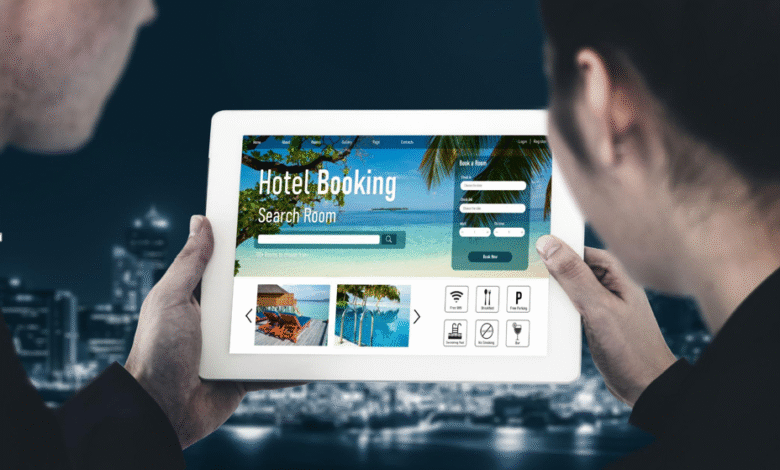From Overbookings to Smooth Sailing: The Role of a Channel Manager

The hospitality industry is going forward at a rapid-rate. Here, the difference between a fully booked property and a room left unfilled many times comes down to technology. Among many digital tools that have reshaped operations in a hotel business, the channel manager for hotelreally stands out. It is a sophisticated system that make sure adeptness, maximizes revenue, and creates unified guest experiences.
Understanding the Chaos: Why Overbookings Happen
Overbookings can be the stuff of nightmares for hoteliers. Envision welcoming a weary traveler only to tell them there’s no room available due to a booking oversight. These incidents mainly occur when hotels manually update multiple online booking platforms.
Without a centralized system, even the most prepared front desk team can find it very hard to keep availability perfectly synchronized. In the contest to fill rooms and stay competitive, the lack of real-time updates can lead to:
- Duplicate bookings caused by delayed inventory updates.
- Pricing inconsistencies that confuse guests and hit trust.
- Staff burnout from constant manual updates across multiple sites.
Enter the channel manager, a centralized hub that connects your property’s reservation system with all your online distribution channels in real time.
What Exactly Is a Channel Manager?
A channel manager is software that automates the distribution of your hotel’s room inventory, rates, and availability to various online travel agencies (OTAs) and booking platforms. Instead of manually logging into each OTA to update prices or availability, the channel manager does it instantly across all connected channels.
Think of it as the conductor of an orchestra, ensuring every booking platform plays in harmony with your property management system (PMS). This integration eliminates the risk of overbookings, boosts visibility, and keeps your pricing strategy consistent.
The Smooth Sailing Effect: Key Benefits
1. Real-Time Inventory Updates
Every time a guest makes a reservation, whether through your website, an OTA, or over the phone, the channel manager updates availability instantly. This prevents double bookings and ensures guests always see accurate room options.
2. Consistent Pricing Across Platforms
Maintaining rate parity is crucial for both trust and compliance with OTA agreements. A channel manager lets you set your prices once, and it updates across all platforms instantly, avoiding price mismatches.
3. Time Savings for Staff
Manual updates can consume hours each day, particularly for properties listed on multiple OTAs. By automating this process, your team gains more time to focus on enhancing guest experiences.
4. Greater Reach and Visibility
Connecting to more OTAs increases your property’s online presence. With a channel manager, expanding your reach doesn’t mean extra workload.
5. Reduced Risk of Human Error
Automation drastically minimizes the chance of incorrect data entry, wrong prices, or missed updates.
See also: Health Hacks Ontpwellness: Health Hacks: Ontpwellness for Optimal Health
The Role in Revenue Management
Beyond avoiding overbookings, channel managers have a direct impact on a hotel’s bottom line. By analyzing booking trends, seasonal demand, and competitor pricing, many channel managers help you dynamically adjust rates. It means you can optimize revenue without constant manual monitoring.
For example, during a high-demand period such as a local festival or holiday season, your channel manager can automatically increase room rates across all channels. Conversely, during slow months, it can lower rates or offer packages to encourage bookings.
Integration with Other Hotel Systems
A powerful channel manager doesn’t work in isolation. It integrates seamlessly with:
- Property Management Systems (PMS) for smooth check-ins, check-outs, and housekeeping coordination.
- Central Reservation Systems (CRS) to consolidate bookings from different sources.
- Revenue Management Systems (RMS) for data-driven pricing decisions.
When these systems work together, you get a fully optimized, guest-centric operation that runs like clockwork.
The Human Side of Technology
While a channel manager automates processes, it also indirectly improves guest satisfaction. Here’s how:
- No awkward “we’re full” conversations with guests due to overbookings.
- Faster response times to booking inquiries.
- Better personalization, as staff have more time to focus on guest needs rather than repetitive administrative tasks.
Choosing the Right Channel Manager for Your Hotel
Not all channel managers are created equal. When searching for the top channel manager for hotels, consider the following factors:
1. Number of OTA Connections
The more platforms it integrates with, the broader your potential reach.
2. Real-Time Synchronization
Delays in updating availability can still lead to overbookings, so choose a solution with true instant syncing.
3. Ease of Use
Look for a user-friendly interface so your team can adapt quickly without extensive training.
4. Reporting and Analytics
Insights into booking sources, occupancy trends, and revenue performance help fine-tune your sales strategy.
5. Customer Support
24/7 assistance ensures that if an issue arises, it’s resolved promptly without affecting guest bookings.
The Future of Channel Management
With advancements in AI and machine learning, future channel managers are expected to become even smarter. Predictive analytics will allow hotels to anticipate demand shifts before they happen. Integration with chatbots and virtual assistants will enable instant guest communication. Dynamic pricing will become more precise, factoring in everything from weather conditions to local events.
Final Thoughts
In today’s competitive hospitality market, efficiency isn’t optional, in fact, it is very necessary. A channel manager is more than a software solution; it’s the backbone of smooth operations, consistent pricing, and happy guests. It eliminates the stress of overbookings, frees up staff time, and boosts revenue through smarter distribution.
Whether you run a small boutique inn or a large chain property, embracing this technology means shifting from firefighting booking errors to focusing on what truly matters: delivering memorable guest experiences. Reach out to RateTiger to get one of the best channel manager for hotels. They offer different services to ensure smooth operations of your hotel operations online. Contact them to know more!





